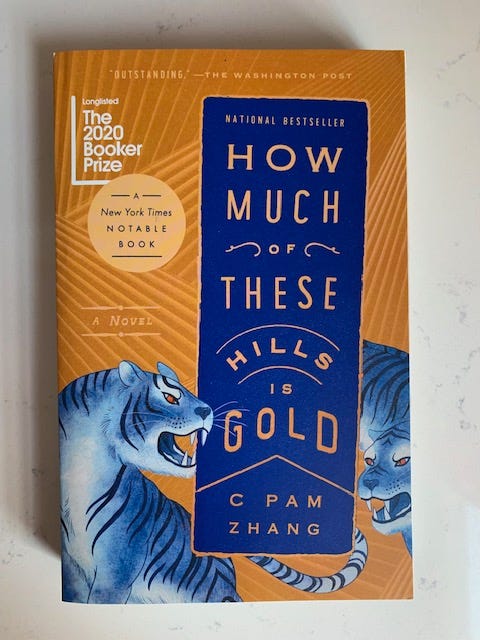'The Transit of Venus' by Shirley Hazzard
'...the tragedy is not that love doesn't last. The tragedy is the love that lasts.'—Review #166

I hope you guys are enjoying these dog days of summer, lol! I was asked on Twitter this week to recommend a vacation read that was ‘Fiction, HEAVY, existential but not too serious.’ Without hesitation I suggested ‘The Transit of Venus’ by Shirley Hazzard, though I had finished it less than 24 hours prior. I tweeted back: ‘It's got some of the best writing I've encountered in a while. A sweeping story over several decades. Gut punches. Love. Betrayal. It's a tour de force. I was emotionally wrecked.’1
Here’s the cover:
If you enjoy this review, click the ♥️ above or
New here? Learn more
I knew next to nothing about the novel when it came into my orbit following the March release of a new Penguin Classics edition and there was coverage in the usual bookish spaces. The only transit of Venus I knew was the phenomenon where the planet appears to pass in front of the sun. NASA has a cool GIF of it:
‘The Transit of Venus,’ however, is not about astronomy, but it has people in transition physically, emotionally and romantically. Venus is present in a metaphorical sense, signaling love: a force, like gravity, that keeps people swirling around each other, not coming together, but not breaking free, either. The story follows Grace and Caroline Bell, two young sisters who emigrate from Australia to post-war England after their parents die in a ferry accident. Grace, the conventional sister, eventually marries a well-to-do bureaucrat/diplomat named Christian Thrale. Caroline, who goes by Caro, is a free spirit who works an office job, has an affair with a married playwright named Paul Ivory, and eventually marries a prominent American and moves to New York. There’s also Ted Tice, a scientist who falls for Caro early on, but is rebuffed and spends the rest of the book like:

We follow the Bell sisters and the other characters as they go in and out of each other’s lives over several decades. We see their loves, their joys, their heartaches, their infidelities and their darkest secrets. I was riveted not only because they formed a compelling constellation, but also I was hooked on Hazzard’s writing. Every page is packed with beautifully constructed sentences and evocative turns of phrase, and I littered the book with underlines and marks to remember them. One I love is: ‘…the Pacific rolled, a blue toy between paws.’ Anyone who has a cat can see that ocean in their mind. Another scene that stuck with me was where Caro and Ted meet later in life. He pulls out a folded paper and says:
It’s a picture of Caro in younger days. Ted wanted to remind her not only of the time when they met, but also that he has been devoted to her, and despite the years and their being married to other people, he hasn’t given up hope they one day will be together. Caro replies only that she didn’t remember owning the dress she’s wearing in the photo. Her response was so devastating that I sighed heavily enough to break Donna’s concentration on her crossword puzzle. Another thing about the writing: Hazzard sprinkled in little details and clues throughout the story that subtly foreshadowed future events. For example, an almost throw-away line on the first page resurfaces at a critical point near the end of the story. You really have to:
In the Twitter thread I mentioned above, I said I plan to tell everyone to read this book. It left me exhausted but fulfilled, and I want to read it again. If you’re looking for an intense, beautiful and heartbreaking book to close out your summer reading, I strongly urge you to read ‘The Transit of Venus.’
How it begins:
By nightfall the headlines would be reporting devastation.
It was simply that the sky, on a shadeless day, suddenly lowered itself like an awning. Purple silence petrified the limbs of trees and stood crops upright in the fields like hair on end. Whatever there was of fresh white paint sprang out from downs or dunes, or lacerated a roadside with a streak of fencing. This occurred shortly after midday on a summer Monday in the south of England.
As late as the following morning, small paragraphs would even appear in newspapers having to fill space due to a hiatus in elections, fiendish crimes, and the Korean War—unroofed houses and stripped orchards being given in numbers and acreage; with only lastly, briefly, the mention of a body where a bridge was swept away.
That noon a man was walking slowly into a landscape under a branch of lightning. A frame of almost human expectancy defined this scene, which he entered from the left-hand corner. Every nerve—for even barns and wheelbarrows and things without tissue developed nerve in those moments—waited, fatalistic. Only he, kinetic, advanced against circumstances to a single destination.
Farmers moved methodically, leading animals or propelling machines to shelter. Beyond the horizon, provincial streets went frantic at the first drops. Wipers wagged on windshields, and people also charged and dodged to and fro, to and fro. Packages were bunged inside coat-fronts, newspapers upturned on new perms. A dog raced through a cathedral. Children ran in thrilling from playgrounds, windows thudded, doors slammed. Housewives were rushing, and crying out, “My washing.” And a sudden stripe of light split earth from sky.
My rating:
‘The Transit of Venus’ by Shirley Hazzard was published by Viking in 1980. It was published by Penguin in 1990 and in 2021, with an introduction by Lauren Groff. 355 pages. $16.56 at Bookshop.org.
Let’s discuss this book:
Connect: Twitter | Instagram | Goodreads | Email
Before you go:
ICYMI: Review #165 featured ‘If on a winter’s night a traveler’ by Italo Calvino | Browse the Archive
Read this: Author Lauren Groff’s introduction to the 2021 edition of ‘The Transit of Venus’ was published in Literary Hub. She talks about the benefits of rereading the book, which I will certainly do. She also delves into interesting aspects of Hazzard’s life, from her troubled upbringing in Australia to her eventual life in New York. But I appreciated most how Groff delves into technical aspects of Hazzard’s writing, and explores her sentence construction down to the placement of verbs. (Side note: Some of you may remember that I reviewed Groff’s ‘Fates and Furies’ back in 2017.)
Read this, too: For another take on ‘The Transit of Venus,’ be sure to read Parul Sehgal’s review in The New York Times. I love the details that stood out to Sehgal, like how well Hazzard describes the effects of rain, from soggy clothes to disintegrating luggage. She also explores a question that’s apparently related to this book: whether a reader needs to achieve a suitable age or have enough lived experience to fully appreciate it. While I think readers can benefit from a book regardless of age, I do agree that there’s a strong case that readers over 40 might get more out of this novel.
Thanks for reading, and thanks especially to Donna for editing this newsletter!
Until next time,
MPV
Books on GIF newsletters with most ♥️s
This description worked!














Oh wow this looks so delicious, I can’t wait to read it!
Lovely review! And I'm saving the happy sunday gif!